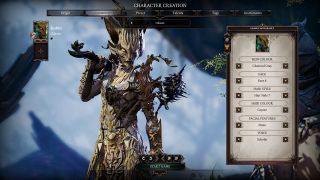
Vincke claims that many of the core cooperative multiplayer elements of Original Sin were based on The Lady, The Mage and The Knight. Players could switch between the game's three protagonists or bring in other players to control them, and during cooperative play every character could attack, initiate dialog and generally take agency in the world. "We were trying this same multiplayer concept, and ever since it was cancelled we’ve been trying to remake that game."Ĭancelled in 1999, The Lady, The Mage and The Knight was designed to be a three-player cooperative RPG based on the popular German role-playing game franchise Das Schwarze Auge, or "The Dark Eye." "Not many people remember, but one of our first games, which was cancelled during production because the publisher went bankrupt, was a game called The Lady, The Mage "Ever since it was cancelled we’ve been trying to remake that game."and The Knight," says Vincke. This constant struggle against publisher expectations eventually drove the staff of Larian Studios to pursue independent development, in part so they could start a project they'd been trying to make for fifteen years. "It's all due to Kickstarter and Early Access." Cancelled, but not forgottenLarian Studios has repeatedly tried to finagle co-op and multiplayer options into its previous projects, including Original Sin predecessor Divinity II, but the cost of QAing that multiplayer content always caused publishers to mandate its removal. "We never expected it to be this successful," says Vincke. Now it's the top-selling title on Steam and Larian's fastest-selling retail release to date the studio is well on its way to recouping the roughly $4 million it spent on the game's development.

Larian managed to beat them both to market, launching Original Sin on Steam's Early Access service in January before bringing it to retail at the end of June. The Belgian studio Kickstarted Original Sin (to the tune of just under $1 million) last April despite competition from prominent, concurrent Kickstarter campaigns for isometric RPGs like Richard Garriott's Shroud of the Avatar and inXile's Torment: Tides of Numenara.

It's proven remarkably successful despite - or perhaps because of - its nostalgia-tinged design, which draws inspiration from German pen-and-paper roleplaying games as well as '90s-era PC RPGs like Baldur's Gate. I've called him to ask after Divinity: Original Sin, Larian's recently-released isometric cooperative PC RPG. "We never managed to sell it to a publisher in the past every time we proposed, it was refused." "We always wanted to make an old-school PC RPG with multiplayer," says Swen Vincke, the founder of Larian Studios.


 0 kommentar(er)
0 kommentar(er)
